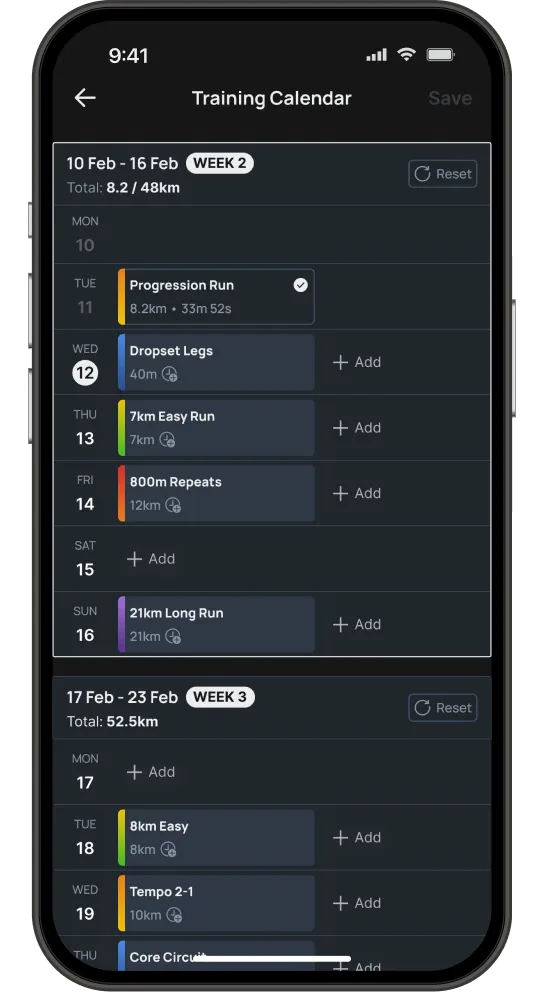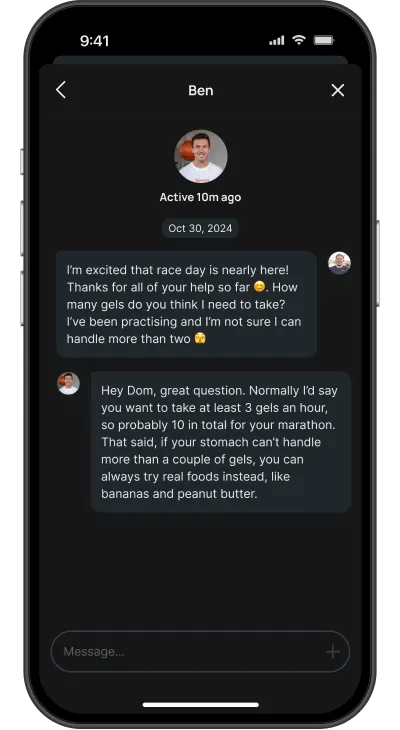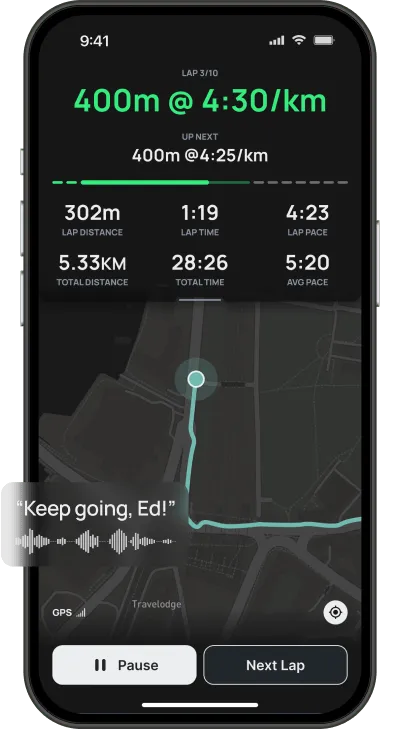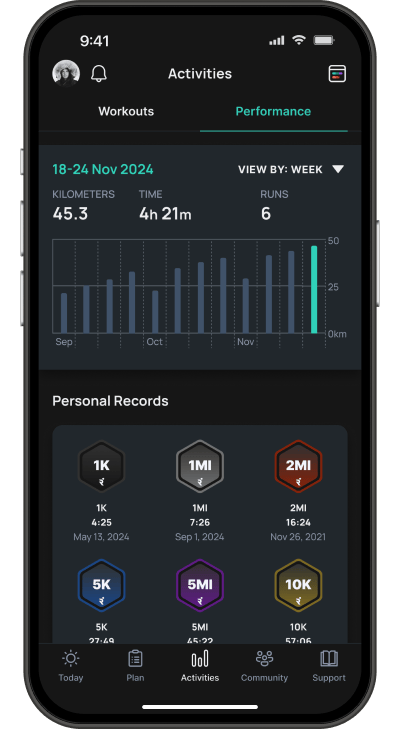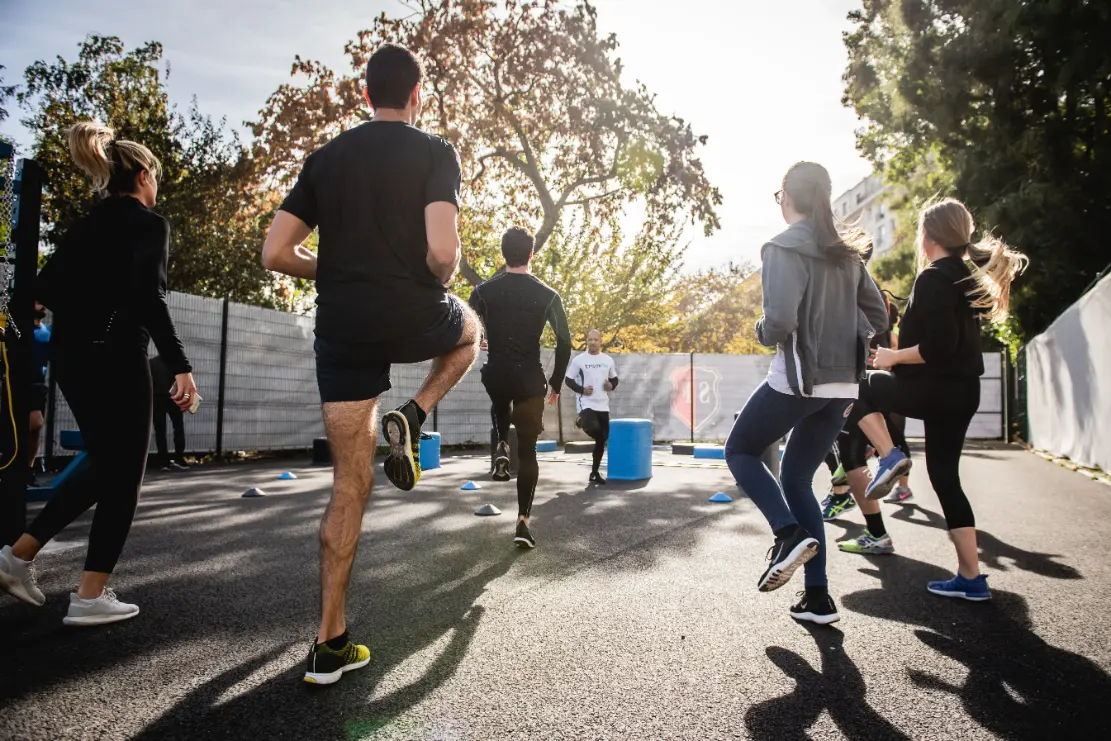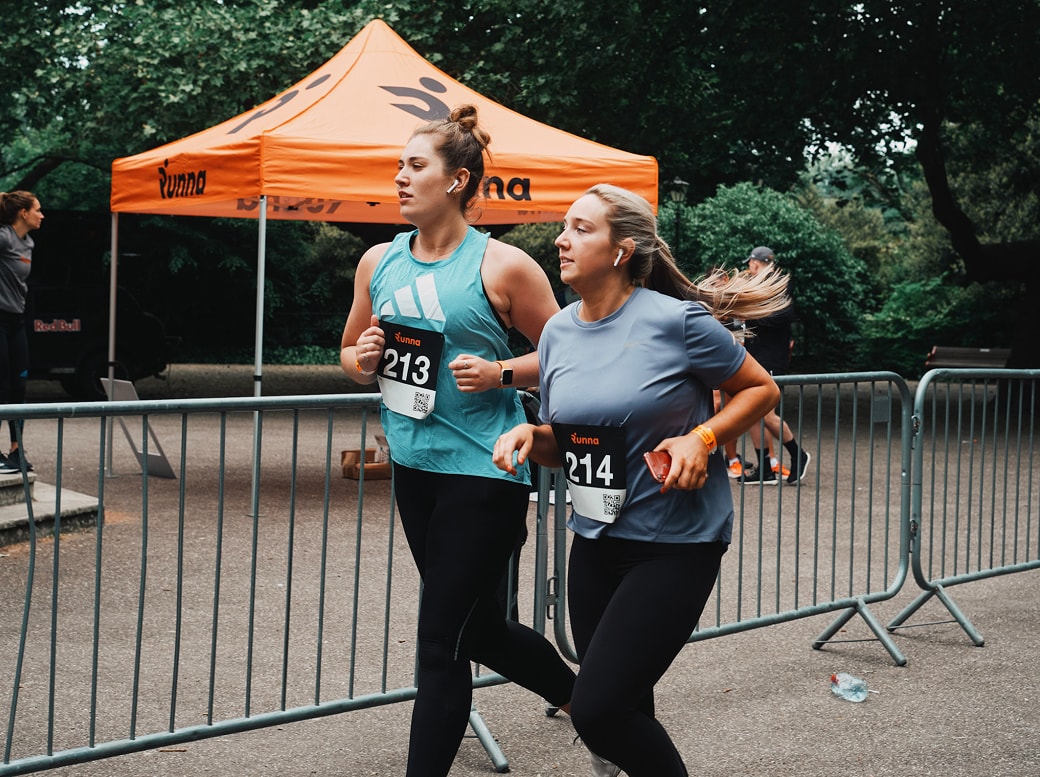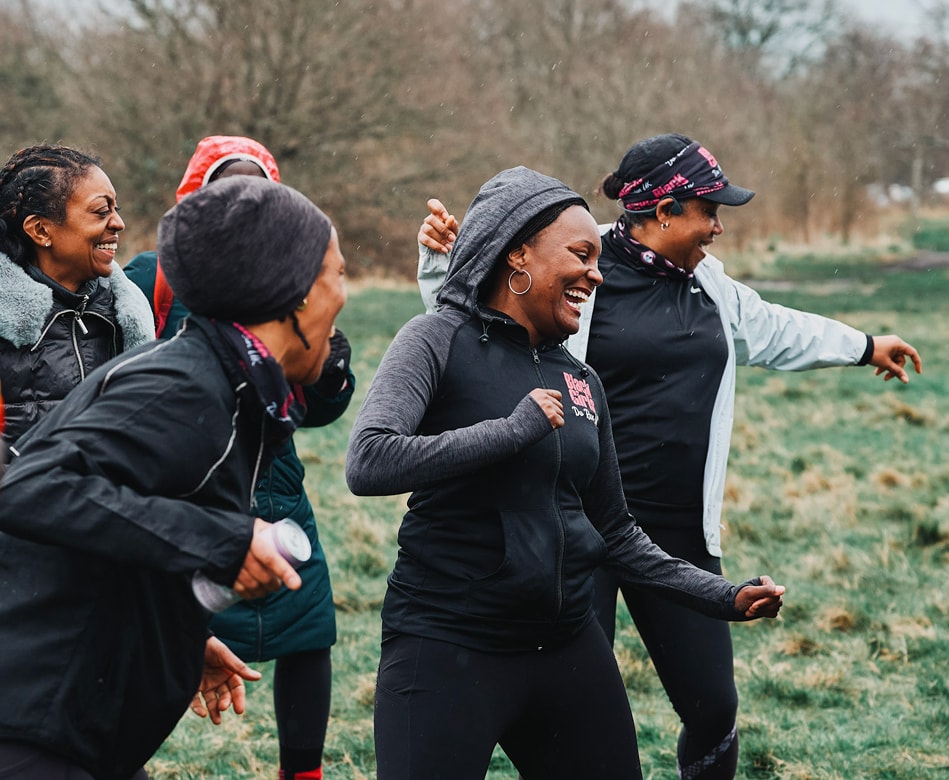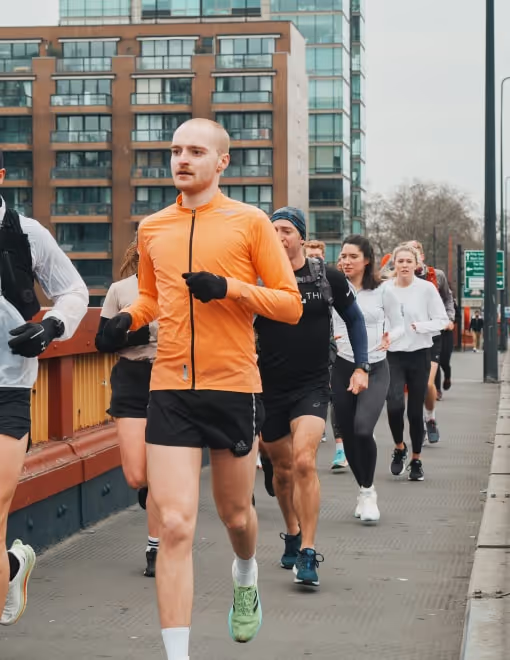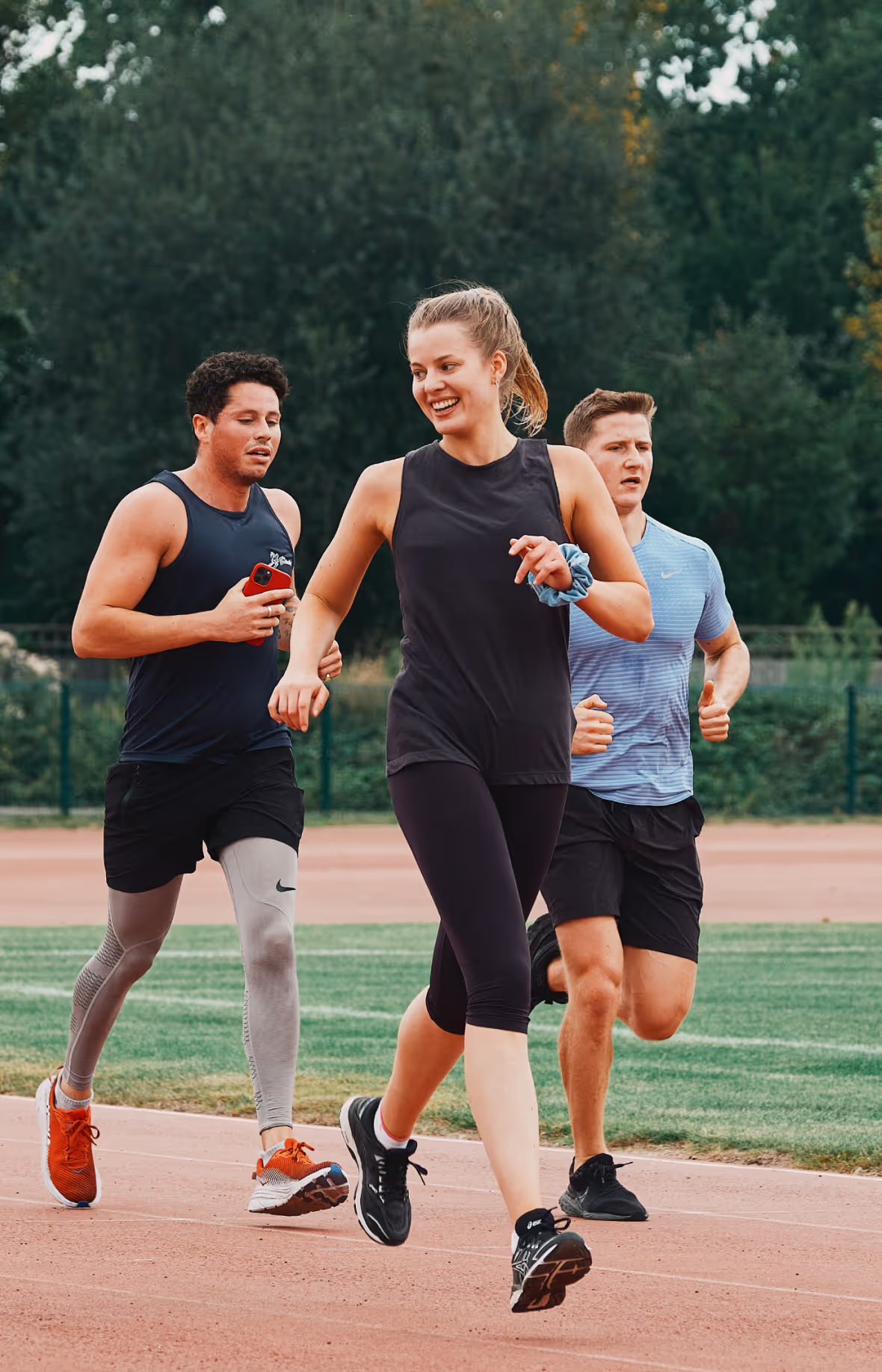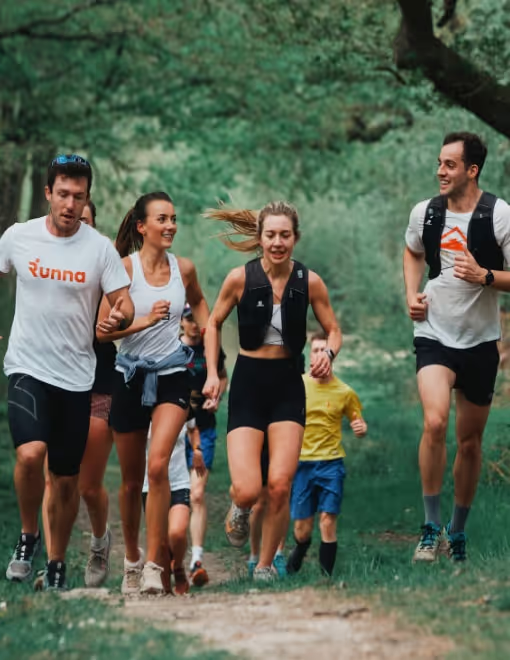5k Training Plan
Whether it’s your very first race or your fastest yet, the 5k is the perfect distance to challenge yourself. With the right training plan, you’ll find your rhythm, build speed, and enjoy the journey to the finish line.

How to train for a 5k
A 5k is 5 kilometers (3.1 miles) - one of the most popular running distances in the world. From charity runs to major city races, it attracts beginners taking on their first event as well as seasoned runners chasing new PBs.
The beauty of the 5k is its versatility: it’s short enough to feel achievable for almost anyone, yet challenging enough to really test your speed and endurance. With the right training plan, you can build consistency, improve fitness, and enjoy every step of the journey.
The key to success is staying accountable and developing a weekly routine. Aim for a few runs each week, add them to your schedule, and, if possible, sign up for a race - having a date on the calendar is a powerful motivator. Running with friends or joining a local club can also keep training fun and social.
The best way to bring all this together is with a structured plan. Runna will create a personalized 5k program based on your goals, schedule, and experience - and it will guide you through every session so you stay consistent, stay motivated, and reach the finish line feeling your best.

Why choose our 5k training plan?
Whatever your pace, background, or finish-line dream, we’ll guide you every step of the way.
How to get started
Training for a 5k should feel simple and stress-free - and with Runna, it is.
Choose your plan
Set your goal - whether it’s your first 5k or a new PB - and we’ll build a training plan that fits your fitness and schedule.
Download the app
Download the app, log in, and you’ll have your full training plan - complete with runs, tips, and guidance - at your fingertips.
Run, run, run!
Simply tap ‘Go’ and follow along. Every run is laid out clearly, so you always know exactly what to do.
Hit that goal
Stick with the plan and you’ll toe the line ready to crush your 5k - and finish stronger than you thought possible.
Workouts explained
Your 5k training includes a mix of sessions - each with a clear purpose. Here’s what they are and how they’ll help you on race day.
Tips for your 5k training plan
These expert-backed tips will help you train smarter, avoid injury, and stay motivated. From pacing and recovery to gear and mindset, discover just a small snippet of all the tips, nutrition and coaching advice you'll have at your fingertips with a Runna training plan.
Nutrition
Training is only part of the equation - nutrition has a big impact on how you feel and perform. Fueling well helps you recover faster, train consistently, and show up on race day ready to go.
- Keep protein high to support muscle repair.
- Eat extra carbs before tougher runs or workouts.
- Try caffeine in training if you want an extra boost in speed or focus.
You don’t need to carb-load for a 5k, but carbs are still your best source of energy. Before runs, stick to complex carbs like oats, whole grains, sweet potatoes, or fruit to keep energy steady.
Race day nutrition
- A carb-rich meal 2-3 hours before your start time will keep you fueled.
- Keep protein, fat, and fiber low so digestion doesn’t weigh you down.
- Most importantly, only eat foods you’ve practiced with in training - nothing new on the day.
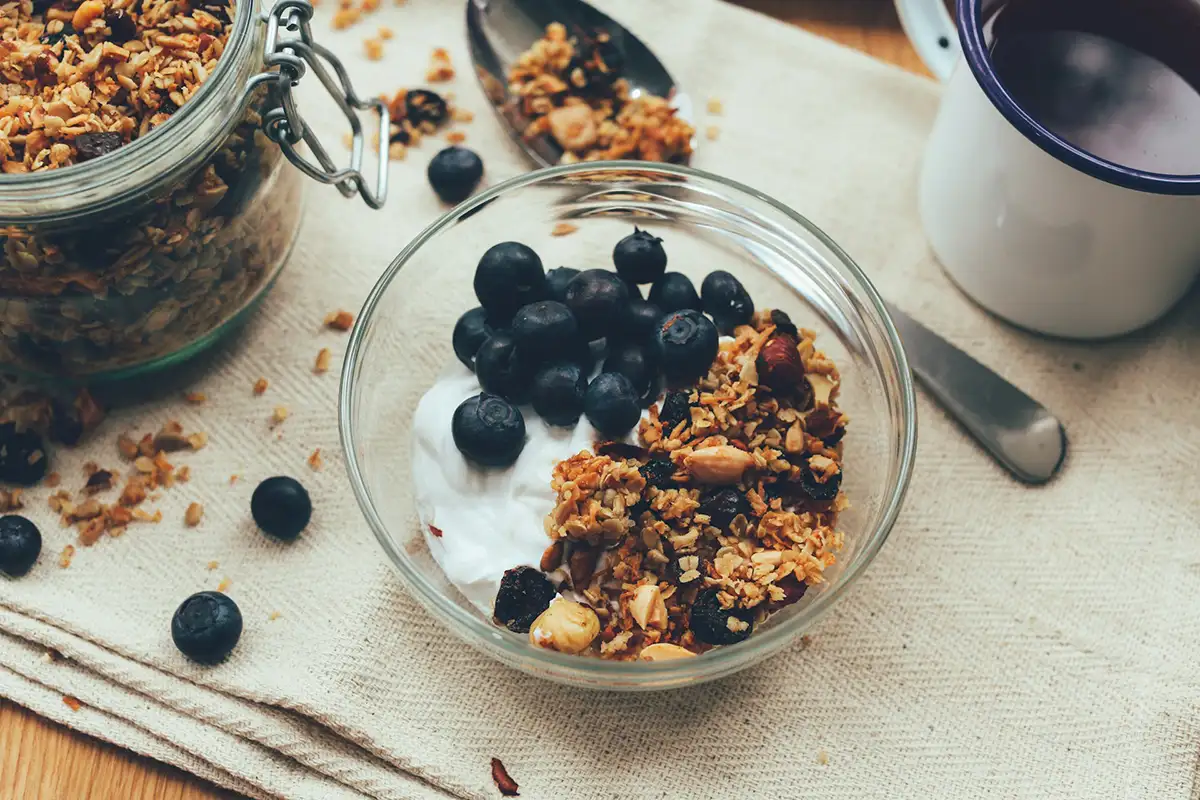
Cross-training and strength training
Adding cross-training and strength training to your 5k running plan helps you achieve two things: reduce injury risk and improve your performance.
Cross-training is any activity that builds fitness without the same impact as running. Cycling, swimming, rowing, or using the elliptical are all great options. These workouts keep your aerobic engine strong while reducing stress on your legs. They’re also a useful way to stay active if you’re carrying a niggle, or if you want to add variety to your week. Choosing something you enjoy makes it easier to stay consistent.
Strength training is one of the most effective ways to improve both performance and injury resistance. By targeting the muscles most involved in running - calves, quads, glutes, hamstrings, and core - you’ll build the stability and power needed to hold good form and push harder over a short but intense race like the 5k.
- Strength training can improve running economy by 8-12%, helping you run faster with less effort.
- It prepares your muscles to handle the impact of high-speed running, so you’re less likely to pick up overuse injuries.
- Even 1–2 short sessions per week can make a noticeable difference to your performance and resilience.
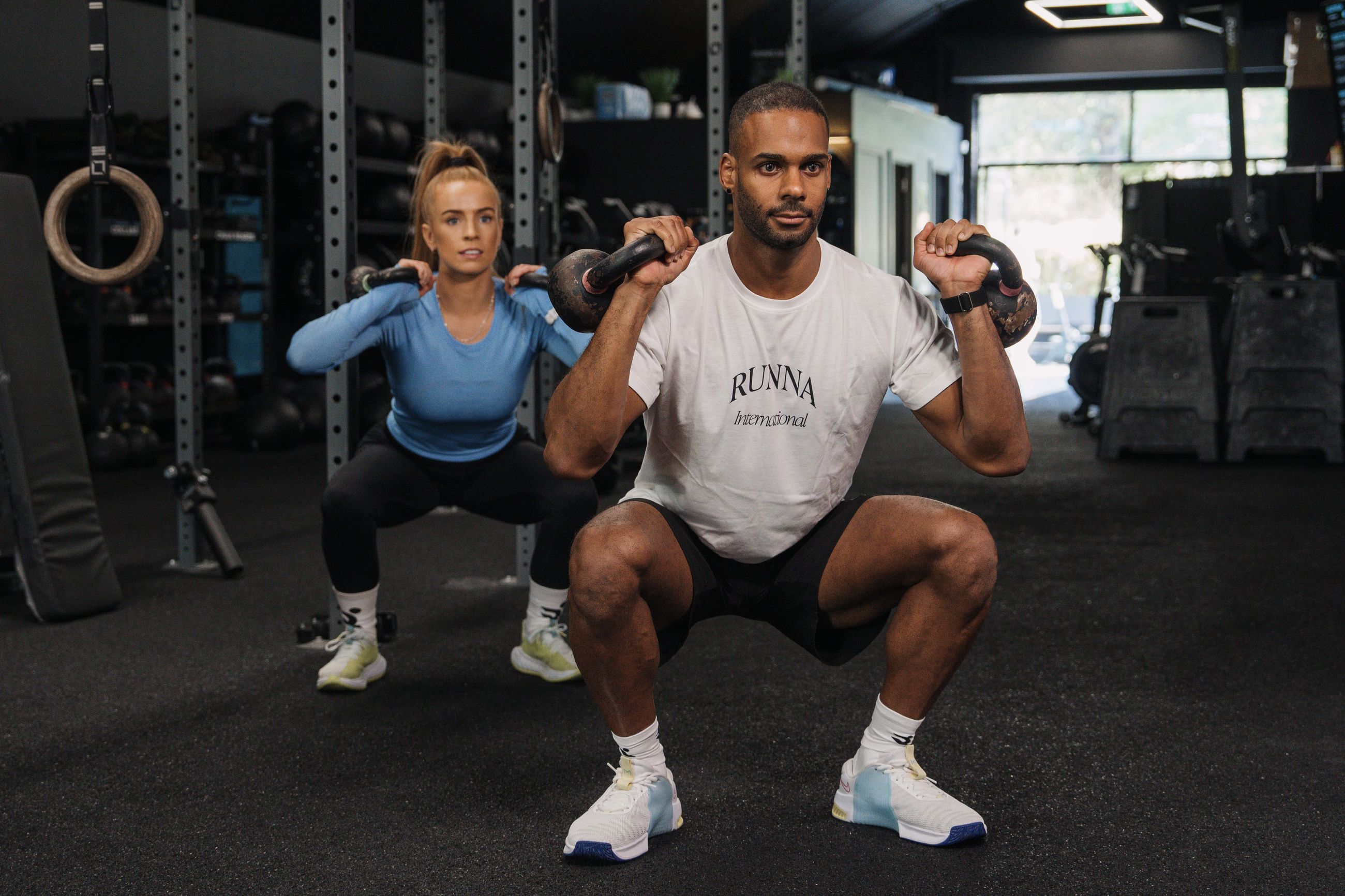
Pacing
Pacing is key to running your best 5k. Because it’s a short race, you’ll want to run close to your target pace from the start - but control and planning still matter.
Start by working out your goal finish time. For example, if you’ve run 25:45 before, aiming for sub-25 minutes is realistic, but sub-24 minutes may be a step too far right now. The faster your current time, the smaller the gains you should aim for.
Unlike longer races, you don’t need a wide pace range - aim to lock into your target pace straight away.
Here’s a smart approach to pacing a 5k:
- First 1-2 km: Try to hit your target pace from the start. Expect the first km to be a little quick due to adrenaline, but keep it within 2–3 seconds of your target. Don’t burn too much energy early.
- Middle section (2-4 km): This is where it gets tough. Focus on holding steady pace, knowing every step is taking you closer to the finish. If you’re feeling strong, you can increase slightly here.
- Final kilometer: This is where you empty the tank. Dig deep, use the crowd, and push hard to the line.
Tip: If you’re chasing a PB, choose a flat, fast route where you can settle into rhythm without hills or sharp turns.
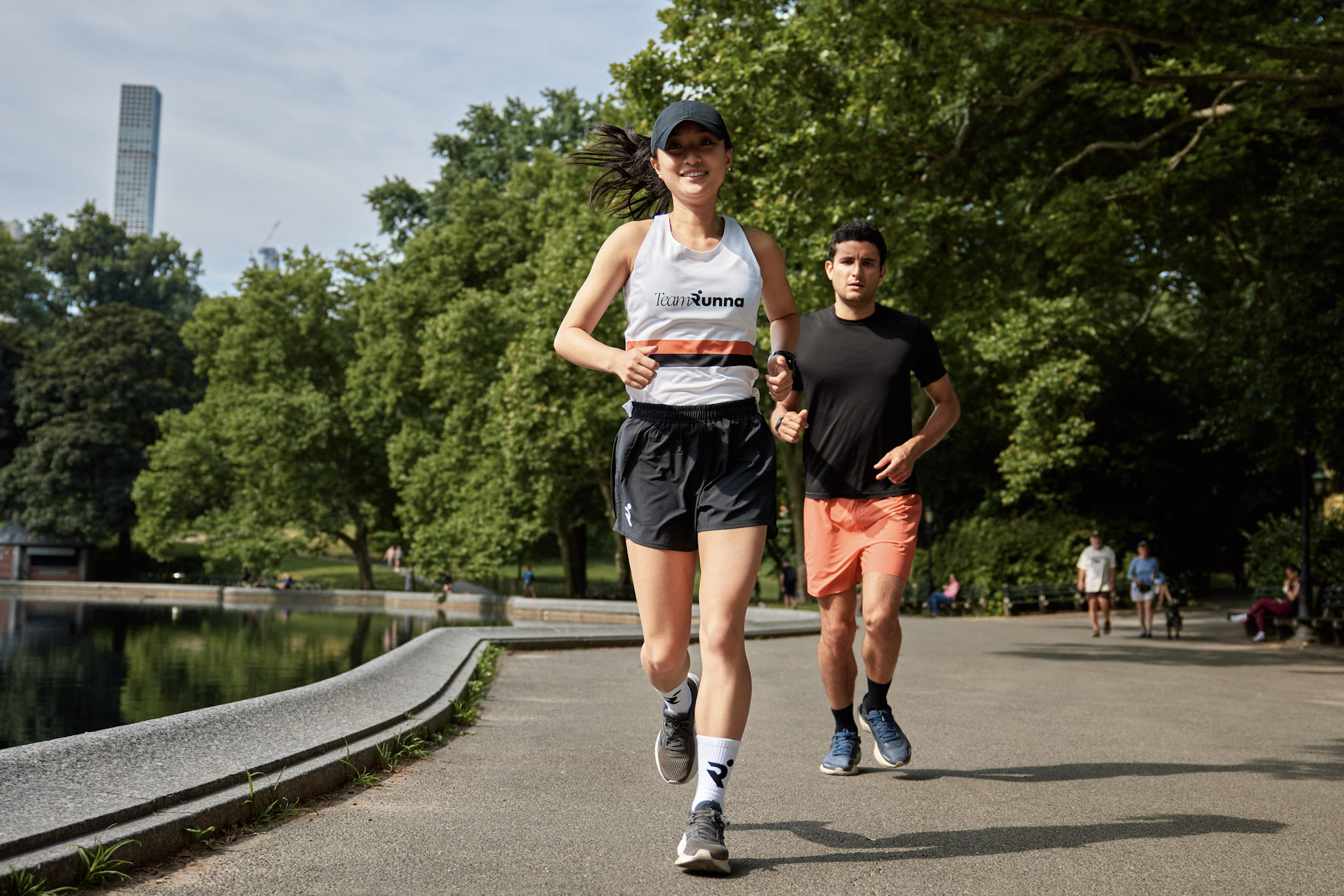
Form
Your running form is crucial for making the most of your training. Running efficiently will:
- Protect your body from impact, even at faster speeds.
- Reduce the energy cost of running so you can hold pace more comfortably.
- Lower your risk of injury, especially when adding speed sessions.
Form matters at every distance, but in a 5k it’s often the difference between finishing strong or slowing in the final kilometer.
- Run tall with relaxed shoulders.
- Keep strides short, quick, and light to maintain turnover.
- Drive arms back to create rhythm and forward momentum.
- Stay relaxed through your face, hands, and jaw to conserve energy.
Practice good form in training so it feels natural on race day. Focus especially during interval sessions or tempo runs, where holding posture under fatigue matters most. Small, consistent improvements will make you smoother, faster, and more resilient.
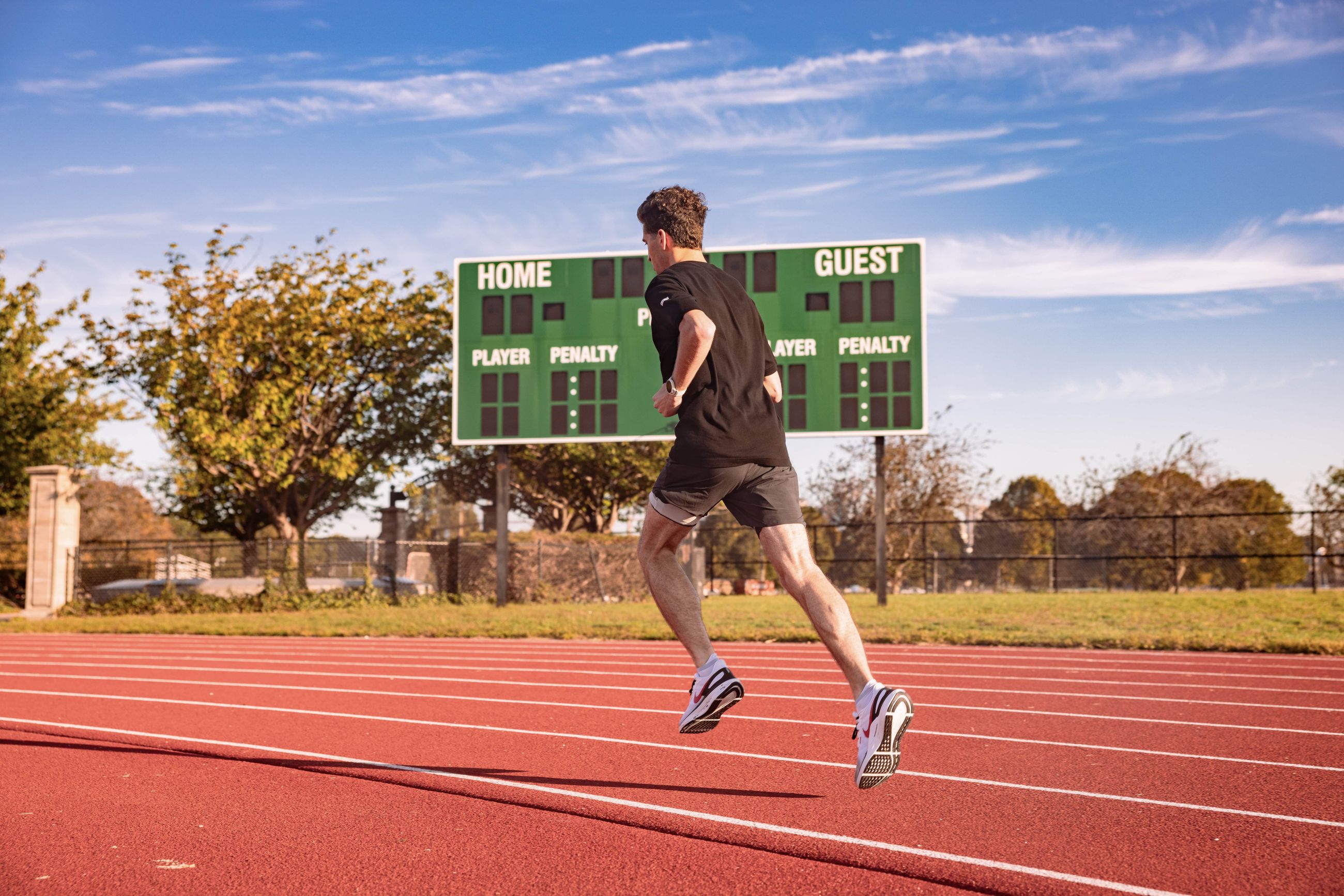
Recovery
Even though the 5k is a shorter distance, recovery is still essential. The speed and intensity of training put a lot of stress on your muscles and joints, so looking after your body ensures you can train consistently and improve without setbacks.
Here are the key things to focus on
- Sleep: Aim for 7-9 hours each night. Quality sleep is when your body repairs, adapts, and gets stronger.
- Mobility work: Add yoga, Pilates, or stretching into your week to improve flexibility and reduce stiffness from speed sessions.
- Massage and tools: Use a foam roller, massage gun, or occasional sports massage to ease tight muscles and boost recovery.
- Nutrition and hydration: Refuel after runs with carbs and protein to replenish glycogen and repair muscles. Stay hydrated throughout the day to support energy levels and recovery.
- Active recovery: Easy movement - like walking, cycling, or swimming - improves blood flow and loosens sore muscles without adding more fatigue.
- Flexibility: Listen to your body. If you feel unusually tired or sore, take an extra rest day or swap a workout. One missed run won’t stop your progress, but pushing through fatigue could set you back.
After a 5k race, most runners recover quickly - often within a few days. Still, give yourself some downtime before jumping back into hard training, so you come back feeling fresh and motivated.

Gear
The gear you use in training and on race day plays a big role in both comfort and performance. Here’s what to think about when preparing for your 5k:
- Shoes: Invest in a pair that matches your running style and stride. For 5ks, some runners prefer lightweight “racing shoes” to maximize speed, while others stick with their everyday trainers for comfort. Try both in training to see what feels best.
- Clothing: Choose technical fabrics (polyester or nylon blends) that wick sweat and reduce chafing. Even in a shorter race like the 5K, cotton can leave you damp and uncomfortable.
- Running watch or GPS tracker: Monitoring pace is especially useful in 5k training, where seconds matter. A GPS watch or phone app will help you stay consistent. Runna integrates with Garmin, Apple Watch, Coros, and Strava so your training and progress sync automatically.
- Accessories: For shorter runs, you may not need much, but a lightweight belt or armband can help carry essentials like keys or your phone.
- Sun protection: A high-SPF sunscreen is worth using even on cloudy days, since you’ll often be racing in the morning or midday sun.
Golden rule: practice with all your kit in training. Don’t try new shoes, clothing, or gadgets on race day.
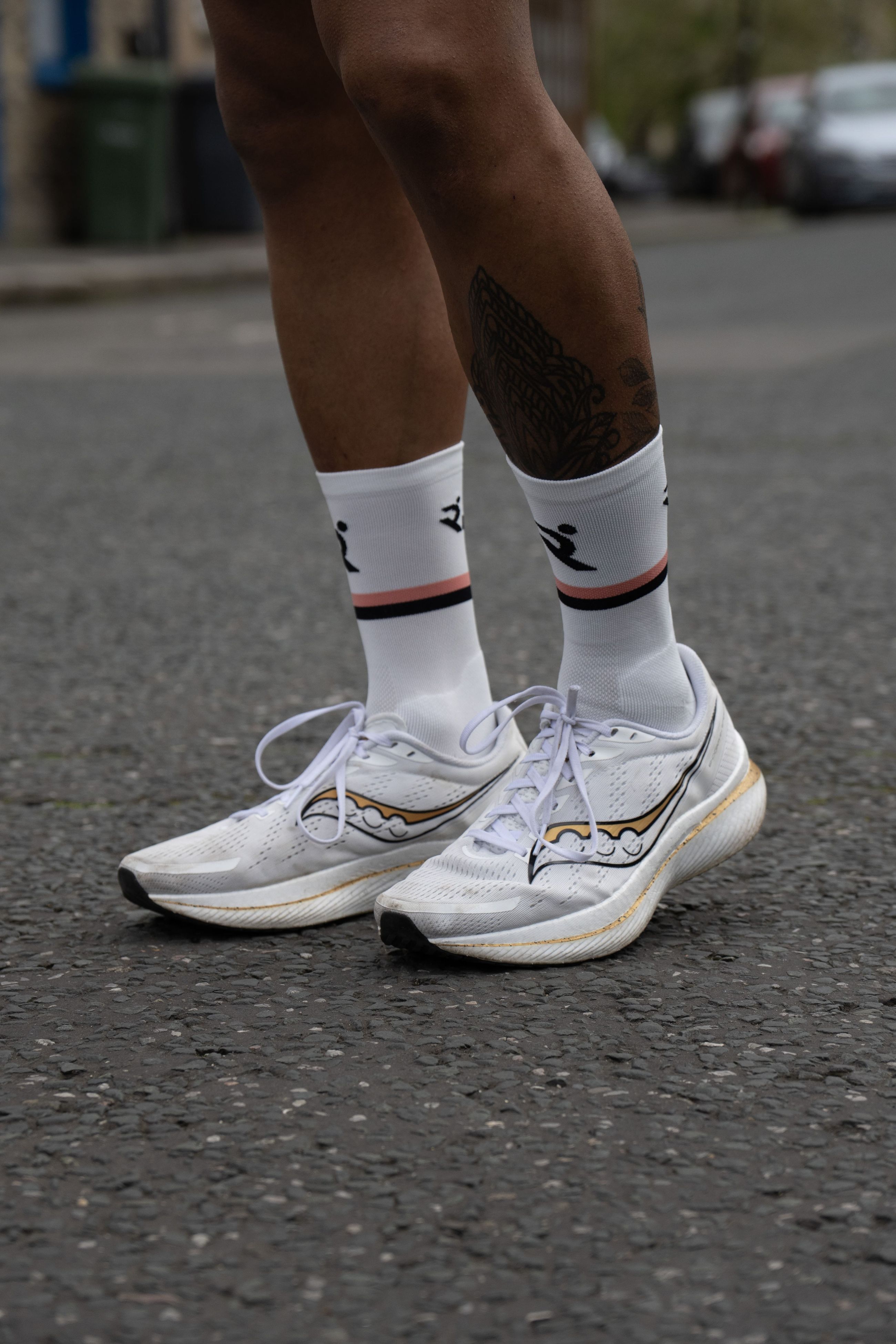
As featured in




Stories from Runnas
FAQs: All you need to know about running a 5k
5k distance: how long is a 5k in miles?
A 5k is 5 kilometers, which is approximately 3.1 miles.
How long will it take me to prepare for a 5k race?
Depending on your current fitness level, preparing for a 5k could take anywhere from 6 to 12 weeks. Patience, consistency, and determination are your best allies here, regardless of whether you’re a complete beginner or want to improve your 5k time and set a new personal best.
Which 5k training plan should I pick?
Choose a training plan that matches your fitness level and schedule. Remember to take into consideration the date of your next race, too.
What 5k finishing time should I aim for?
If it's your first 5k or if you’re recovering after a long break, aiming to finish is a great goal! If you’ve already done a few 5ks before, adapt your goal time to your previous performance. With experience, you’ll gradually become faster, but it’ll also become more difficult to set a personal best.
5k training and injuries: What should I do if I'm recovering from an injury?
If you’re recovering from an injury, running-related or not, consult with your doctor before you start training. Remember to take it slow and listen to your body.
You can do a 1-minute jog test and a 30-seconds hop test to see whether you get any pain. When you’re ready to go on your first run, go for a 10-minute test run broken down into 2-minute segments to see how your body feels. Read more about post-injury training.
I only have 5 weeks to prepare. What should I do?
Five weeks can be enough if you’re already in good shape or have run before. If you only have a short period of time to prepare for your next race, it’s important to set a realistic goal and be consistent with your training.
A personalized training plan can help you make the most out of each training session to achieve your goals (or get as close to them as possible).
How can I improve my 5k time?
To improve your 5k time, you need to do different kinds of runs, such as interval and tempo training, long runs, and speed work.
A personalized training plan that uses a variety of approaches and types of runs is your best bet if you’re looking to optimize your speed performance.
5k and general fitness: Do I need to do strength training to run a 5k?
While strength training is not an absolute necessity, it can definitely boost your running game by improving stability and strength and reducing injury risk.
How can I progress from a 5k to a half marathon?
To progress from a 5k to longer distances such as a 10k or a half marathon, you need to increase your weekly mileage and add longer runs to your training. Speed work, such as interval or tempo training, is also essential, as it’ll help you get used to running at higher speeds for longer.
With Runna, you can get a personalized 5k to a half marathon training plan to help you achieve this goal.
Inspiration

The Ultimate 5k Training Guide
All the training tips you need to level up your 5k running journey, from mileage to training types.

How to Pace Your 5k
Pacing is key for running a 5k. Here are our top-tips to help you get that PB!

5k & 10k checklist: All the essentials for a smooth race
Ready for your next 5k or 10k race? Make sure you have all the essentials you need to bring to the start line with you for a smooth race – and get ready to set a new PR!

